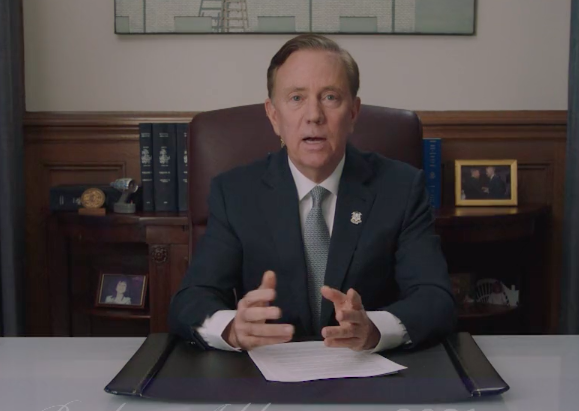Processing Your Payment
Please do not leave this page until complete. This can take a few moments.
-
News
-
Editions
-
- Lists
-
Viewpoints
-
HBJ Events
-
Event Info
- 2024 Economic Outlook Webinar Presented by: NBT Bank
- Best Places to Work in Connecticut 2024
- Top 25 Women In Business Awards 2024
- Connecticut's Family Business Awards 2024
- What's Your Story? A Small Business Giveaway 2024 Presented By: Torrington Savings Bank
- 40 Under Forty Awards 2024
- C-Suite and Lifetime Achievement Awards 2024
- Connecticut's Health Care Heroes Awards 2024
-
-
Business Calendar
-
Custom Content
- News
-
Editions
View Digital Editions
Biweekly Issues
- April 29, 2024
- April 15, 2024
- April 1, 2024
- March 18, 2024
- March 4, 2024
- February 19, 2024
- February 5, 2024
- January 22, 2024
- January 8, 2024
- + More
Special Editions
- Lists
- Viewpoints
-
HBJ Events
Event Info
- View all Events
- 2024 Economic Outlook Webinar Presented by: NBT Bank
- Best Places to Work in Connecticut 2024
- Top 25 Women In Business Awards 2024
- Connecticut's Family Business Awards 2024
- What's Your Story? A Small Business Giveaway 2024 Presented By: Torrington Savings Bank
- 40 Under Forty Awards 2024
- C-Suite and Lifetime Achievement Awards 2024
- Connecticut's Health Care Heroes Awards 2024
Award Honorees
- Business Calendar
- Custom Content
Lamont, top lawmakers make progress streamlining emergency orders issued during pandemic
 Photo | CT Mirror
Gov. Ned Lamont.
Photo | CT Mirror
Gov. Ned Lamont.
Gov. Ned Lamont and legislative leaders from both parties on Thursday took a step toward streamlining the hundreds of policies the governor imposed via executive order during the first year of the coronavirus pandemic.
But it remained unclear whether the two parties will find common ground when it comes to the extent of the governor’s emergency powers during future crises.
“I believe there was a willingness and a cooperative spirit among the four caucuses to work,” Senate Minority Leader Kevin Kelly, R-Stratford, said following a teleconference meeting between legislative leaders and the governor Thursday afternoon.
Lamont, who has issued more than 300 executive orders under powers that allow him to suspend state laws or temporarily change them, has whittled that down to about 80 that he wants legislators to consider extending or codifying in state law.
Under the terms of a law passed last week, the governor’s emergency powers are set to expire on May 20.
Republican leaders have been pressing since the General Assembly session began in January for the legislature to begin sorting through these orders and begin removing those no longer needed.
House Speaker Matt Ritter, D-Hartford, called Thursday’s gathering “a very productive meeting,” and Lamont, also a Democrat, said he’s hopeful a a resolution can be reached soon.
The governor noted many of his orders center on COVID-19 vaccination policy and there’s “a real need” to ensure the ongoing effort to protect residents across all age groups continues to progress smoothly.
The larger challenge, though, might be finding agreement on how the Executive Branch’s emergency powers should operate in the future.
The state Supreme Court recently upheld the statute establishing the governor’s emergency authority, but it also pressed the legislature to create a clearer oversight process.
Lamont initially declared a public health emergency on March 11, 2020, shortly after the first coronavirus case in Connecticut was announced. Legislators suspended the 2020 session and passed no legislation until a special session in July.
Lamont’s emergency powers were based on a public health law — which specifies a procedure for a special legislative committee to block the governor — and a civil preparedness law.
The committee is composed of the top six legislative leaders from the four caucuses, as well as the four leaders of the General Assembly’s Public Health Committee.
This panel declined to block the initial six-month emergency declaration or subsequent shorter extensions.
The bill passed last week ratified Lamont’s pandemic declarations and extended his authority by one month. On a party-line vote, the Senate rejected a Republican amendment that would have curbed the governor’s powers.
The Senate Republican amendment would have required legislative ratification of any emergency lasting longer than seven days. A House GOP version would have limited emergency power to 30 days when the legislature is in session.
Kelly and House Minority Leader Vincent J. Candelora, R-North Branford, said some greater version of the legislative oversight should be added to state law. Otherwise, “it’s a delegation of legislative authority without a vote of the legislature,” Candelora said.
Both Ritter and Senate President Pro Tem Martin M. Looney, D-New Haven, said they remain open to discussion, but they were wary of rigid limits.
]The Democratic leaders said emergencies, by their nature, aren’t smooth. And a 187-member General Assembly — with 151 representatives and 36 senators — can’t move as quickly as one governor.
An already complex process “gets a little trickier” if the emergency happens when the legislature isn’t in regular session, Ritter noted.
A part-time body, the General Assembly meets in regular session from early January through early June in odd-numbered years, and from early February through early May in even-numbered years.
Looney warned that limiting the governor’s ability to respond to a true emergency — such as a once-in-a-century pandemic — was “dangerous.”
“The very nature of an emergency is something that requires decisive and very quick executive action. I wouldn’t want to do anything to impede that,” he said.
Lamont and legislative leaders agreed Thursday to continue talks on executive orders and emergency powers but did not yet schedule another meeting.

2022 Giving Guide
This special edition informs and connects businesses with nonprofit organizations that are aligned with what they care about. Each nonprofit profile provides a crisp snapshot of the organization’s mission, goals, area of service, giving and volunteer opportunities and board leadership.
Learn more
Subscribe
Hartford Business Journal provides the top coverage of news, trends, data, politics and personalities of the area’s business community. Get the news and information you need from the award-winning writers at HBJ. Don’t miss out - subscribe today.
Subscribe
2024 Book of Lists
Delivering Vital Marketplace Content and Context to Senior Decision Makers Throughout Greater Hartford and the State ... All Year Long!
Read Here-
2022 Giving Guide
This special edition informs and connects businesses with nonprofit organizations that are aligned with what they care about. Each nonprofit profile provides a crisp snapshot of the organization’s mission, goals, area of service, giving and volunteer opportunities and board leadership.
-
Subscribe
Hartford Business Journal provides the top coverage of news, trends, data, politics and personalities of the area’s business community. Get the news and information you need from the award-winning writers at HBJ. Don’t miss out - subscribe today.
-
2024 Book of Lists
Delivering Vital Marketplace Content and Context to Senior Decision Makers Throughout Greater Hartford and the State ... All Year Long!
ABOUT
ADVERTISE
NEW ENGLAND BUSINESS MEDIA SITES
No articles left
Get access now
In order to use this feature, we need some information from you. You can also login or register for a free account.
By clicking submit you are agreeing to our cookie usage and Privacy Policy
Already have an account? Login
Already have an account? Login
Want to create an account? Register
Get access now
In order to use this feature, we need some information from you. You can also login or register for a free account.
By clicking submit you are agreeing to our cookie usage and Privacy Policy
Already have an account? Login
Already have an account? Login
Want to create an account? Register






0 Comments